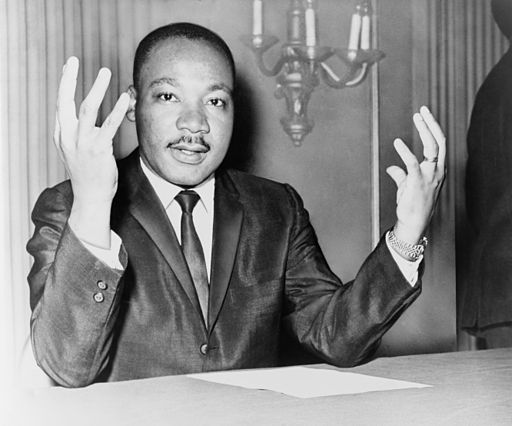By Derek Penwell
When I teach Theodicy (i.e., the problem of evil and suffering) to my university students, I start out by playing a game of hangman. I draw out a random number of blanks, and start asking for letters.
“S? No.”
“R? Nope.”
“E? Sorry.”
I doesn’t take long before I have a couple of blanks filled with X or Q. I might randomly add another space or two. This usually brings cries of protest.
Finally, the figure fills out. They lose.
Now they’re really howling. “There isn’t any set of English words with those letters!”
“Do you want to know what the phrase is?” So, I start writing on the board: Lawlessness and Chaos.
Sheer frustration. Somebody, usually earnest and sitting in the front row, someone used to school making sense, yells out, “That’s not fair.”
So, I ask, “How do you like it when somebody doesn’t follow the rules? Hard to play the game when someone keeps changing them, isn’t it?”
They don’t like it … not one bit.
But then again, nobody does, do they? We like consistency and predictability. We don’t like the thought that lawlessness and chaos might insinuate themselves into the otherwise stable taken-for-grantedness of our lives.
One of the reasons, people have such a difficult time with the question of evil and suffering is that it usually represents a deviation from the way our middle class American lives are lived.
You turn on your T.V. set one Friday morning, getting ready for Christmas, planning your last-minute shopping, when a reporter announces that some guy has walked into an elementary school in Connecticut and mercilessly slaughtered twenty six year-olds. Shock. Anguish. Outrage.
But people die all the time, right? Even children. What’s so different about this?
The difference is that we don’t want to live in a world where it’s possible for grade school kids to be murdered in the sanctuaries we’ve built for their education. Too scary to contemplate.
So, what do we do? We start looking for someone or something to blame.
Inadequate security. Proliferation of weapons. Poor mental health care. Violent video games.
We’ve got to find some culprit, since the thought that sometimes awful things happen and that, no matter how well we prepare, we can’t prevent those awful things is just too horrifying to ponder. So, we look to see where the rules have been broken.
The problem of evil raises the issue of anomie (lawlessness). We feel as if no one is in charge, as if there are no rules, and therefore, no meaning. Even the way we phrase it (“the problem of evil”) implicitly suggests our belief that something has gone wrong—that something isn’t as it should be. It suggests that evil is somehow unnatural, a breakdown in the system.
But, even more than evil, the real culprit is anomie. Even if the outcome doesn’t amount to evil and suffering, human beings generally don’t like surprises. We like predictability. The idea of change is enough to set our teeth on edge. If I put the toe-nail clippers in the medicine cabinet, I want to know that the next time I need them, they’ll be right where I go to look.
“Well, did you look in the cupboard?”
“No. Why would I look there? I put them in the medicine cabinet.”
“You’ve got to broaden your field of vision. You can’t just look in one place and expect to find something.”
“I can expect to find something where I put it, because that’s why I go to the trouble of putting it there in the first place—so, I don’t have to have a conversation with a fifteen year-old at 7:45 in the morning about where my dang toe-nail clippers are!”
Stable. Predictable. Is that too much to ask?
Unfortunately, stable and predictable are much harder to find than we realize. The world is changing … rapidly. Things are growing more complex, less predictable all the time. It’s scary.
And communities are just as likely as individuals to look for stasis in a world undergoing constant transformation. In fact, for a lot of reasons, communities are often less open to change, more resistant to playing by a different set of rules than individuals.
I’m thinking specifically of churches—both congregationally and denominationally.
Seth Godin wrote an interesting blog post the other day about paracosms. Paracosms are highly detailed and absorbing imaginary worlds—think Middle Earth or Narnia. One of the notable differences with paracosms is that they operate under a different set of rules from the ones we live under. Talking animals. Dragons. Magic. Invisibility.
These paracosms are useful to child developmental psychologists in helping them to understand how children confront the anomie represented by a death or tragedy experienced in early childhood. Paracosms help people sort out and understand their loss.1
Paracosms, elaborate and detailed worlds that allow for a rearranging of constituent parts into new possibilities, are particularly helpful in allowing children to orient “themselves in reality.”
With Seth Godin, I find the idea of paracosms to be an interesting notion for creatively attacking the uncertainty of a changing world. The church, which has undergone its own share of tragedy and loss over the past forty years, might do well to begin to play with paracosms.
What would a perfect world look like?
How would the church contribute to the shaping of such a world?
If all the old rules about what church should look like were no longer in place (e.g., buildings, Sunday mornings at 11:00, denominational headquarters, Sunday School, parking lots, copy machines, bulk mailing permits, etc.), how might congregations and their denominational counterparts on the regional and national levels embody the reign of God in ways designed to inhabit a new world?
Let’s get really crazy:
Would ordained clergy still look the same? Would we even have clergy?
How about the laity? What if the laity were the radical ones pushing to respond to the demands of the new world?
Would this paracosm require that the bulk of the people who spoke for God be male, middle class, and white?
What if this new world were so upside down that because of the population make up, middle class white guys were the last ones seated at the trough instead of the first ones?
What if worship were conceived as something we did on our feet, searching out people where they live—and not on our butts, waiting for people to come to where we live?
What if this new world required that we have no assets at all? How would the church live out its witness?
I know, all that stuff is fantastical. You start screwing around with the rules and the hoi polloi get reeeeeally anxious. Anomie. Lawlessness. Chaos.
“You can’t have a church without all that stuff!”
Why not? Maybe the future that’s unfolding, this new world, requires a whole different set of rules that render the old assumptions about what’s necessary obsolete?
Seth Godin writes:
The most effective, powerful way to envision the future is to envision it, all of it, including a future that doesn’t include your sacred cows. Only then can you try it on for size, imagine what the forces at work might be and then work to either prevent (or even better, improve on) that future and your role in it.
We’re followers of Jesus, given the responsibility of proclaiming a new world—one in which God reigns, and not the powers and principalities of this present age.
Change ought not to frighten us; that’s what we’re here to announce … for Christ’s sake.
Morrison, Delmont C. and Shirley L., Memories of Loss and Dreams of Perfection: Unsuccessful Childhood Grieving and Adult Creativity. Baywood, 2005. ↩










